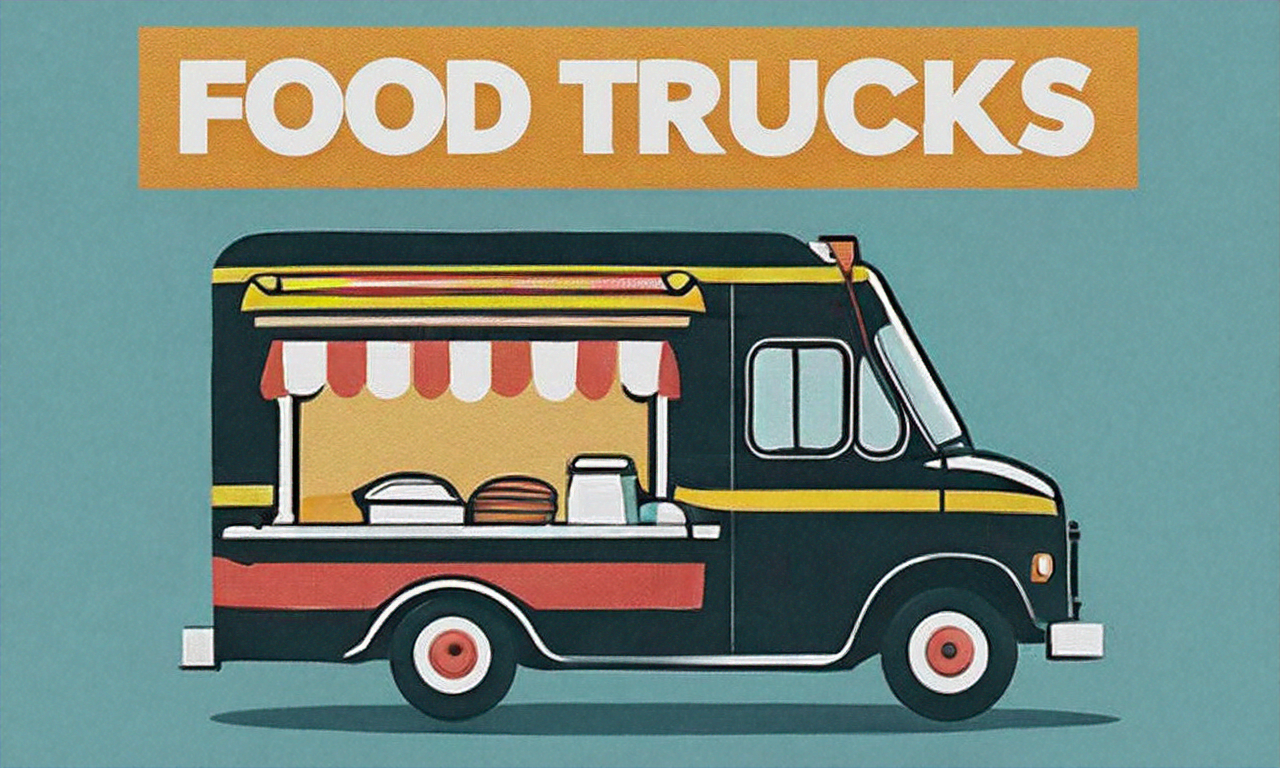Understanding Rent-to-Own Food Trucks: A Flexible Path to Ownership
Starting a food truck business can be costly, but rent-to-own programs might offer an alternative. These agreements sometimes allow individuals to make structured payments while testing their concept, with terms and pricing that vary across companies.

The food truck industry continues to thrive as a vibrant segment of the restaurant market, offering lower barriers to entry than traditional brick-and-mortar establishments. However, purchasing a food truck outright can require a significant investment ranging from $50,000 to $175,000 depending on size, equipment, and customization. This financial hurdle prevents many aspiring food entrepreneurs from launching their mobile culinary businesses. Rent-to-own arrangements have emerged as a practical solution that bridges this gap, allowing entrepreneurs to start operations while building equity toward ownership.
What Are the Benefits of Rent-to-Own Food Trucks?
Rent-to-own programs offer several advantages for entrepreneurs entering the food truck industry. First, they significantly reduce initial capital requirements, allowing business owners to preserve cash flow during the critical startup phase. Unlike traditional leases, each payment contributes toward eventual ownership of the asset, building equity over time. This arrangement also provides operational flexibility, as entrepreneurs can test their business concept before committing to full ownership.
Another key benefit is the potential for maintenance support during the rental period. Many rent-to-own agreements include maintenance packages or technical assistance, reducing unexpected repair costs and downtime. Additionally, these programs often have less stringent credit requirements than traditional financing, making them accessible to entrepreneurs with limited credit history or previous financial challenges.
How Do Rent-to-Own Food Truck Prices Compare?
Rent-to-own food truck pricing structures typically include monthly payments that are higher than standard rental rates but lower than immediate purchase financing. Monthly payments generally range from $1,500 to $4,000, depending on the truck’s value, condition, and included equipment. These payments typically continue for 24 to 60 months, after which the operator takes full ownership.
The total cost of a rent-to-own arrangement usually exceeds the direct purchase price by 15-30% due to the convenience and reduced risk for the provider. However, this premium may be worthwhile for entrepreneurs who lack access to traditional financing or prefer to minimize initial risk. Most agreements require a down payment ranging from $3,000 to $10,000, substantially less than the 20-30% down payment typically required for commercial vehicle loans.
Are Rent-to-Own Food Trucks Available in My Area?
Rent-to-own food truck availability varies significantly by location, with major metropolitan areas offering the most options. Cities with established food truck cultures like Los Angeles, Austin, Portland, New York, and Miami typically have multiple providers offering these arrangements. In medium-sized cities, availability may be limited to one or two providers, while rural areas may require working with providers from nearby urban centers.
To determine availability in your specific location, start by researching specialized food truck manufacturers and dealers in your region. Many national companies now offer rent-to-own programs with delivery options to expand their market reach. Online marketplaces dedicated to food truck sales and financing have also emerged, connecting entrepreneurs with providers across different regions. Local restaurant equipment dealers and food truck associations can provide valuable information about regional availability.
What Should I Consider Before Signing a Rent-to-Own Agreement?
Before committing to a rent-to-own food truck arrangement, carefully review the contract terms and ownership conditions. Pay particular attention to the payment schedule, total cost, and what happens if you miss payments. Some agreements include balloon payments at the end, which can create unexpected financial pressure if not properly planned for.
Inspect the vehicle thoroughly, ideally with a qualified mechanic, to assess its condition and potential maintenance needs. Understand what equipment is included and whether it meets your specific culinary requirements. Verify that the truck complies with local health department regulations and licensing requirements, as retrofitting to meet these standards can be expensive.
How Do Different Rent-to-Own Food Truck Providers Compare?
The market includes various providers offering rent-to-own food trucks, each with different terms, vehicle quality, and support services. Understanding these differences can help you select the provider that best aligns with your business needs and financial situation.
| Provider | Vehicle Types | Monthly Payment Range | Contract Length | Additional Services |
|---|---|---|---|---|
| Roaming Hunger | Custom-built & pre-owned | $2,000-$3,500 | 36-48 months | Design consultation, business coaching |
| Food Truck Company | New custom-built | $2,500-$4,000 | 48-60 months | Warranty, maintenance package |
| Ready to Roll Trucks | Refurbished | $1,500-$2,800 | 24-36 months | Equipment training, limited warranty |
| Custom Food Truck Builders | Custom-built to spec | $3,000-$5,000 | 36-60 months | Custom design, permitting assistance |
| Used Truck Solutions | Pre-owned, basic retrofits | $1,200-$2,200 | 24-36 months | Basic equipment only, as-is condition |
Prices, rates, or cost estimates mentioned in this article are based on the latest available information but may change over time. Independent research is advised before making financial decisions.
What Financing Alternatives Should I Consider?
While rent-to-own arrangements offer convenience, they aren’t the only financing option available for food truck entrepreneurs. Traditional small business loans typically offer lower overall costs but require stronger credit histories and larger down payments. Equipment financing specifically for food service vehicles may provide competitive rates with the equipment serving as collateral.
SBA-backed loans present another alternative with favorable terms for qualified applicants, though the application process is more rigorous. Some entrepreneurs use personal loans, credit cards, or crowdfunding platforms to finance their food truck ventures, though these options carry their own risks and potential higher costs. For those with industry experience, seeking investors or partnerships might provide capital while distributing risk.
Rent-to-own food trucks represent a practical middle ground between traditional financing and standard rentals, offering entrepreneurs a flexible path to business ownership. While these arrangements typically cost more over time than direct purchases, they provide accessibility and reduced initial risk that many find valuable when entering the competitive food truck industry. By carefully evaluating providers, understanding contract terms, and assessing local market conditions, aspiring food truck operators can determine whether this financing approach aligns with their business goals and financial circumstances.




